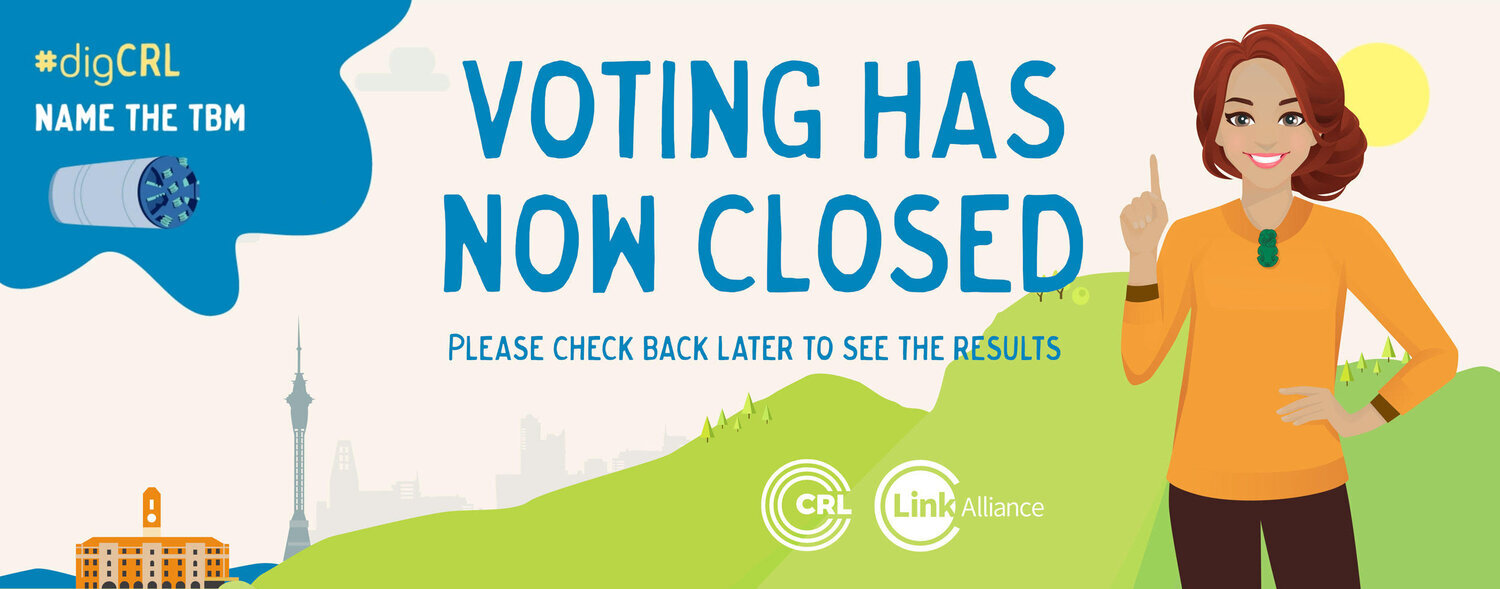TBM naming competition wraps up
The Link Alliance and City Rail Link Tunnel Boring Machine (TBM) naming competition has now come to a close.
Thank you to everyone who submitted a name or voted for their favourite.
We were looking for the name of New Zealand’s most ground-breaking woman, and we had some amazing nominations – over three hundred different women were suggested.
Nominee and nominee representatives will now be contacted before the winning name is announced next week on May 6. Follow us on Facebook to find out who wins!
The competition has proven to be a wonderful opportunity for us to join together nationally and recognise the significant accomplishments of many inspirational women.
We look forward to sharing the winning name with you, as well as the winner of the prize pack for choosing the winning name, which will be drawn at random.
TBM Facts
The Link Alliance’s Tunnel Boring Machine (TBM) is being designed and built by German company, Herrenknecht
Its likely cost is NZ$13.5 million
The diameter of the machine’s rotating cutter head is 7.15 metres; total length is 130 metres (a rugby field is up to 120 metres long)
The total weight is 1,600 tonnes
Herrenknecht will build the TBM at its factory in Guangzhou, China
The TBM will be delivered in sections to New Zealand in September 2020, and reassembled at the Link Alliance’s Mt Eden site
Traditionally, big machines like TBMs are named after a woman in honour of St Barbara, the patron saint and guardian of those working underground
The TBM will start tunnel excavation from Mt Eden in early 2021
It will take nine months for the TBM to complete the first of its two 1.6 kilometre-long journeys from Mt Eden to the Aotea Station in central Auckland
The TBM will have three jobs: excavating the tunnels, removing tunnel spoil and installing concrete segments to line the tunnels
Up to 2,600 tonnes of spoil can be excavated each day
Spoil will be transferred from the TBM by conveyor belt to the Mt Eden site and then transferred to disused quarries
At peak operation the TBM can travel 32 metres a day
A crew of approximately 12 will operate the TBM underground
After its first underground drive to Aotea, the TBM will be returned to Mt Eden in sections and reassembled to excavate the second tunnel
Excavation of the second tunnel is planned to start in January 2022
Herrenknecht designed and built Alice, the TBM used to construct Auckland’s Waterview motorway tunnel

